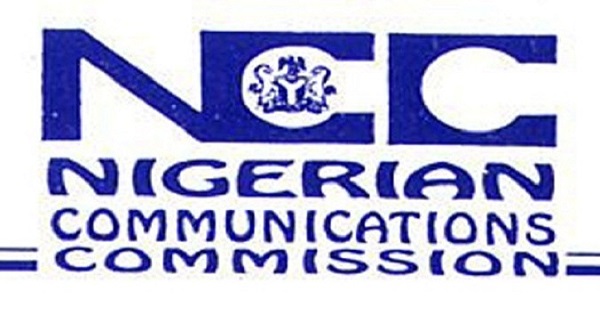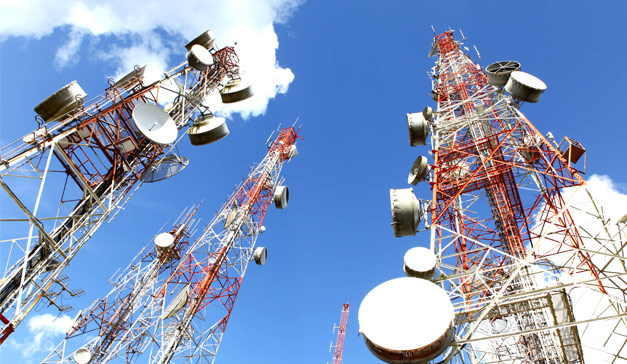Telecom
NCC Withdraws 41m Starcomms, Zoom Mobile, Others Numbers

Nigerian Communications Commission (NCC) has withdrawn 41,095,448 telephone numbers assigned largely to Code Division Multiple Access (CDMA) operators, effectively sealing the blighted fate of CDMA segment of the telecommunications sector,
The withdrawal, took place in the first quarter of this year as part of regulatory efforts to put the country’s National Numbering Plan in order, according to New Telegraph.
The numbers withdrawn, which are both fixed and mobile, were those of Starcomms, Zoom Mobile (formerly Reltel), Multi-links, MTS First Wireless, Mobitel Limited, Rainbownet Limited, Odu’a Telecoms Limited, M-Tel and NITEL. However, Visafone, which has since been acquired by leading GSM operator, MTN, still has its numbers active in the National Numbering Plan for the first quarter.
As at February this year, the duo of Multi-links and Visafone, even though inactive, still had 217,566 lines connected.
While the GSM operators now control 99.7 per cent of the market share, the CDMA operators, though virtually non-existent in terms of infrastructure and physical presence, still have 0.15 per cent market share.
Visafone, the last standing CDMA operator, with over two million subscribers in 24 states, was acquired by MTN in 2016.

The deal, which was sanctioned by NCC, allows MTN to utilise Visafone’s 800MHz spectrum to launch fourth generation Long Term Evolution (4GLTE) services. That acquisition, however, marked the end of Visafone’s voice services as MTN was not interested in sustaining the CDMA operation but using its spectrum to enhance its data services.
According to NCC’s regulation, the Commission has the power to withdraw numbers allocated to service providers if the numbers are being “used for a service that does not satisfy the applicable usage conditions; no number in the block has been brought into service within twelve (12) months of the grant of the application for the assignment; or the block is needed for advancing a clearly identified national interest.”
The rule, however, also ensures that the Commission must notify a licensee about the nature of and the reasons for, a proposal to withdraw a block of numbers at least six (6) months before the withdrawal. “Where the Commission notifies a Licensee about a proposal to withdraw a Block from an Assignment to the Licensee— the Licensee shall not thereafter bring into service any Numbers in the Block unless the Commission informs the Licensee that it has decided not to withdraw the Block,” the rule states.
Before the licensing of GSM operators in 2001, the CDMA operators had been the saving grace for Nigerians who had been at the mercy of the Nigerian Telecommunication (NITEL). It was the days the likes of Multi-links and Intercellular were holding the ace. Post-GSM licensing, the CDMA segment also enjoyed a booming market between 2005 and 2006 when Starcomms and Visafone entered into the telecoms market in a big way, with roll-out plans across several cities in Nigeria.
This, however, only lasted for a while, as the boom reached its peak in 2007, and a downward trend set in. Since then, many CDMA operators began experiencing hard times in maintaining their subscriber base, not to mention expanding the existing number.
Telecom
Telcos Threaten to Disconnect Banks over Misinformation on New USSD Charges

Telecommunication companies have threatened to withdraw their Unstructured Supplementary Services Data (USSD), services from banks over what they called misinformation.

MTN Nigeria, Airtel, Globacom and 9Mobile- the telcos disclosed that the banks’ notice to their customers on the new billing system and airtime deductions for USSD services was misleading.
Also, Association of Licensed Telecom Operators of Nigeria (ALTON) also denied that the directive was from the Nigerian Communications Commission (NCC).
USSD is done via shortcodes on mobile phones and allows bank customers to make transactions in places with limited or no internet service.
Recall that banks earlier this week claimed that NCC has directed them to begin charging them from their airtime rather than from customers’ accounts.
The notice from the banks read in part: “In line with the directive of the Nigerian Communications Commission (NCC), please be informed that effective June 3, 2025, charges for USSD banking services will no longer be deducted from your bank account.
“Going forward, these charges will be deducted directly from your mobile airtime balance in accordance with the NCC’s End-User Billing (EUB) model.
“Under this new billing structure, each USSD session will attract a charge of ?6.98 per 120 seconds, which will be billed by your mobile network operator.
“You will receive a consent prompt at the start of each session, and airtime will only be deducted upon your confirmation and availability of the bank to fulfil this service.
“If you do not wish to continue using USSD banking under this new model, you may choose to discontinue use of the USSD channel.”
Reacting, ALTON, umbrella body of telecom operators in Nigeria, said the banks’ notice is a gross misinformation deliberately hatched to suit their selfish interests.
Hence they threatened to withdraw network support to the banks’ USSD services.
Engr Gbenga Adebayo, chairman of ALTON told Vanguard: ” I don’t understand why the banks are twisting agreements and distorting information just to favour their selfish interests. In the first place, the information wasn’t a directive from the NCC but a joint regulatory agreement between the NCC and the Central Bank of Nigeria, CBN witnessed by the telcos and the banks. The agreement was that if the banks finally cleared all USSD debts owed to the telcos by June 2, 2025, they are free to migrate to the end-user billing method, so long as the model of migration is transparent and agreed upon by the telcos.
“The reason for that clause was because the telcos insisted that the process of migration is such that will not allow a customer to be billed twice; in other words, that a subscriber would not have his airtime deducted and also have his or her money deducted for same services from his or her bank account.
” As we speak, some of the banks have cleared their debts, but the majority are yet to do so. So, even if all the modalities of migrating to end-user billing have been perfectly carried out, the implementation cannot even begin because the banks are yet to clear the USSD debt owed to the telcos.
“Our position now is that if that is the way the banks want to treat the agreement, we may withdraw support for their USSD services. It is not a must-have. They can do without it. But, they should clear the debts as agreed,” he added.
Telecom
MTN Nigeria Plans N900Bn in Service Upgrade

MTN Nigeria has announced plans to embark on a massive capital expenditure (CAPEX) drive in 2025, committing nearly N900 billion to significantly enhance network service quality across Nigeria.

Dr. Karl Toriola, CEO, MTN Nigeria,
The substantial investment, more than double the combined CAPEX of approximately N440 billion spent in 2023 and 2024, underscored MTN’s aggressive strategy to address persistent service quality issues and meet growing customer and regulatory expectations.
Dr. Karl Toriola, CEO, MTN Nigeria, detailed this unprecedented financial commitment during a recent interview on Arise TV, emphasizing that improving service quality is the company’s paramount message for the year.
He highlighted a clear understanding and expectation from both the Nigerian Communications Commission (NCC) and security agencies for improved network quality.
A primary focus of this increased CAPEX will be on putting additional capacity in a city like Lagos, particularly in Abuja, where you have a lot of buildings coming up, you need additional sites because there are coverage issues.
Beyond these critical urban centers, the investment aims to bolster network resilience and ensure power stability for its infrastructure nationwide.
This includes proactively addressing site outages by ensuring timely payment for operational necessities such as diesel for generators, a persistent challenge in the Nigerian operating environment.
Toriola outlined a comprehensive upgrade process, which involves placing orders formally, opening letters of credit, and then the equipment gets shipped in and installed.
He added that MTN will be acquiring new sites and laying fiber to the base station to create better stability” where necessary.
While the immediate CAPEX is geared towards improving existing service quality and capacity, this investment aligns with MTN’s broader goals of enhancing financial inclusion in underserved rural areas, suggesting a long-term vision for network expansion and service improvement that extends beyond metropolitan areas.
Subscribers can anticipate tangible improvements in service quality, with a significant improvement in quality of service expected by the end of the second quarter or early in the third quarter of 2025, according to Toriola.
“This year is all going to be about capital expenditure on an aggressive basis to fix quality of service issues (and) meet both the regulators’ and the public’s expectations,” he affirmed, reiterating MTN’s steadfast focus on customer experience through substantial capital investment.
Telecom
Telecom Regulators in Africa Chart New Course for a Data-driven Future

Telecom regulators and industry leaders from across the Middle East and Africa gathered in Cairo last week to chart a data-driven future for the region.

In a region where digital transformation is accelerating at unprecedented speed, connectivity intelligence firm, Ookla and Egypt’s National Telecom Regulatory Authority (NTRA) joined forces to organise the Telecommunications Regulatory Summit
Themed ‘Harnessing Data and Technology for Superior QoS’, the summit focused on how data, particularly crowdsourced insights, can transform regulatory strategies across the region.
The summit attracted stakeholders from over 30 countries, including delegates from the International Telecommunication Union (ITU) and World Broadband Association (WBBA), who engaged in high-level discussions on optimising network performance and accelerating digital inclusion.
Karim Yaici, lead industry analyst for the Middle East and Africa at Ookla, said the event set the tone for the growing value of data-driven decision-making.
“Access to and the use of crowdsourced data contribute to making more informed decisions, fostering transparency and ensuring that citizens in the MEA region benefit from high-quality, accessible and affordable connectivity,” he said.
The experts underlined that crowdsourced data is becoming a critical complement to traditional regulatory methods.
They agreed that it helps identify service gaps, prioritise infrastructure investments, and drive innovation.
With broadband speeds now closely tied to GDP growth and productivity, accurate performance data is seen as key to socio-economic advancement.
Dr. Hossam Abdel-Mawla, vice-president of technical affairs and quality of service at NTRA, stressed that the summit was pivotal in fostering regional collaboration.
“By actively sharing best practices and exploring innovative data-driven strategies, we are shaping a future where telecom regulations ensure digital inclusion and economic growth across the region,” he said.
In a key session, Ahmed Nabawy, director of client services at Ookla, presented findings on 5G performance in Egypt and Tunisia.
He demonstrated how Ookla’s unified data platform, powered by AI, enables operators to analyse 5G-capable device density and prioritise high-impact rollout areas.
The summit also explored the shift from conventional network quality metrics to more user-centric Quality of Experience models. These advanced analytics tools promise to enhance transparency, improve accountability, and ultimately deliver better connectivity experiences for all.

 E-Business2 days ago
E-Business2 days agoNIMC Plans to Register 95 Percent Nigerians by December

 News2 days ago
News2 days agoJAMB Waxes Worriedly over Rising Digital Exam Fraud

 Telecom2 days ago
Telecom2 days ago9mobile Nigeria Inks Agreement to Roam with MTN

 Telecom2 days ago
Telecom2 days agoIHS Nigeria Moves to Enhance G4S Secure Solutions Site Patrols and Increase Operational Efficiency with Patrol Vehicles

 Telecom2 days ago
Telecom2 days agoBanks, Telcos to Start Deducting USSD Charges from Airtime Today

 E-Business1 day ago
E-Business1 day agoAXIAN Telecom Invests in Jumia Post-MTN Era

 Telecom2 days ago
Telecom2 days agoKonga Launches 3rd Edition of Mid-Year Shopping Festival with Unbeatable Discounts

 E-Financial2 days ago
E-Financial2 days agoFitch Upgrades Fidelity Bank’s National Rating to ‘A+(nga)’, Affirms Long-Term IDR at ‘B’























